Black sex link chickens are one of the breeds that are relatively easy to take care of. They are beautiful birds that have some pretty decent qualities.
Without going into too much detail yet, having one or multiple of this breed should make your farming experience very fulfilling. Keep reading to learn all of the important facts about these chickens.
Weight | 8 - 9 lbs |
Personality | Friendly, energetic, skittish |
Lifespan | 8 - 10 years |
Egg Size | Large |
Egg Color | Brown |
Egg Laying | 250 - 300 |
Cold Hardy | Yes |
Cost per Chick | $2.7 -$4.5 |
This article will cover
- History of Black Sex Link Chickens
- Black Sex Link Chicken Breed Standard
- Personality and Temperament
- Black Sex Link Chicken Egg Laying
- Health Issues and Care
- 5 Tips for Raising Black Sex Link Chickens
History of Black Sex Link Chickens
In terms of background and history, Black Sex Linked chickens are quite interesting. Not only are they also known as Black Star chickens, but they’ve been around since the 1950s.
They were originally bred to produce large amounts of eggs in order to keep stores stocked when the population went through a huge growth during this time. These days, though, you’ll usually find them mostly on personal farms.
Not long after World War 2 ended, troops started coming home and refugees were trying to get to America to have a better life. Since food was already rationed, this influx of people made things a bit harder.
To help, scientists that work with poultry started trying to cross various types of breeds. They finally crossed a Barred Plymouth Rock hen with a Rhode Island Red rooster or a New Hampshire Red rooster.
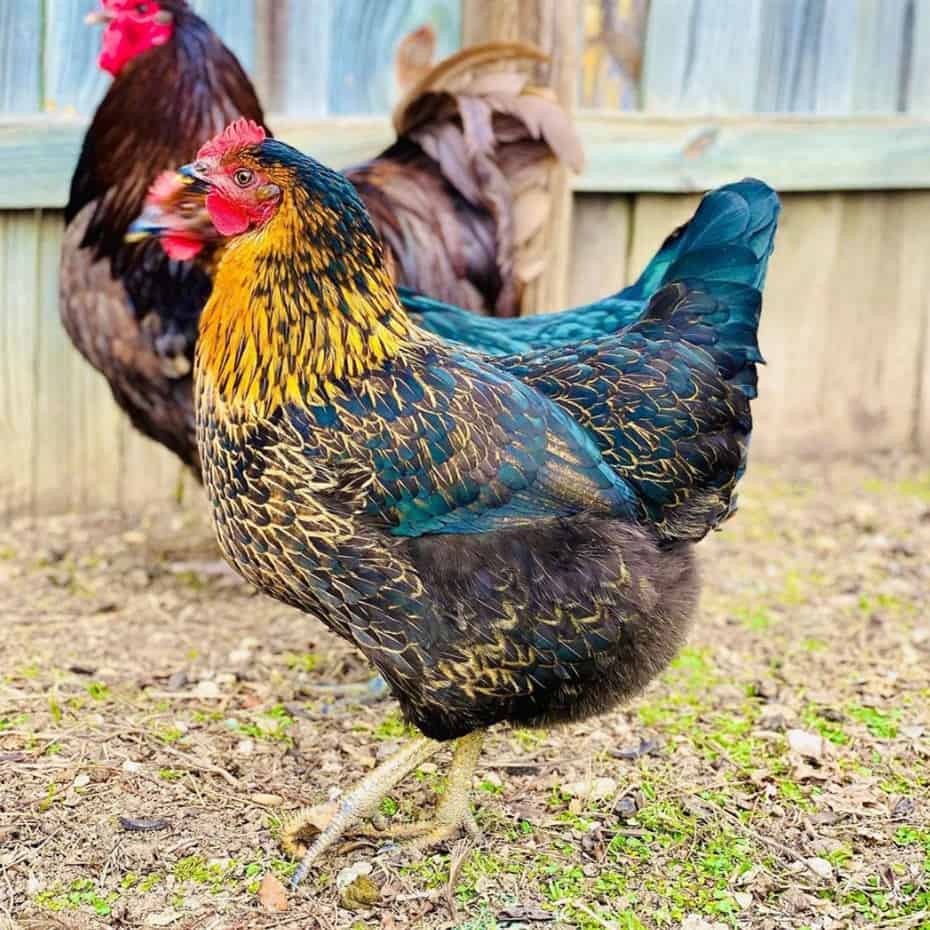
They quickly found that this breed consistently produced large amounts of eggs and the fact that they are sex linked made it so the sex could be distinguished while they were still chicks.
Up until finding this hybrid, scientists had been trying to cross endless breeds. They usually found that the birds did great on some aspects, but fell short on others.
With every breed that didn’t meet their needs, they became more and more frustrated. Finding this cross-over really helped with the rationed food that was already spread thin.
Ever since then, this breed has been one that is sought after when looking for breeds that lay a lot of eggs. While you could still see them on some commercial farms, they are usually found on personal or smaller ones.
They do a great job of providing enough eggs and their personalities are something that many owners end up falling in love with.
Black Sex Link Chicken Breed Standard
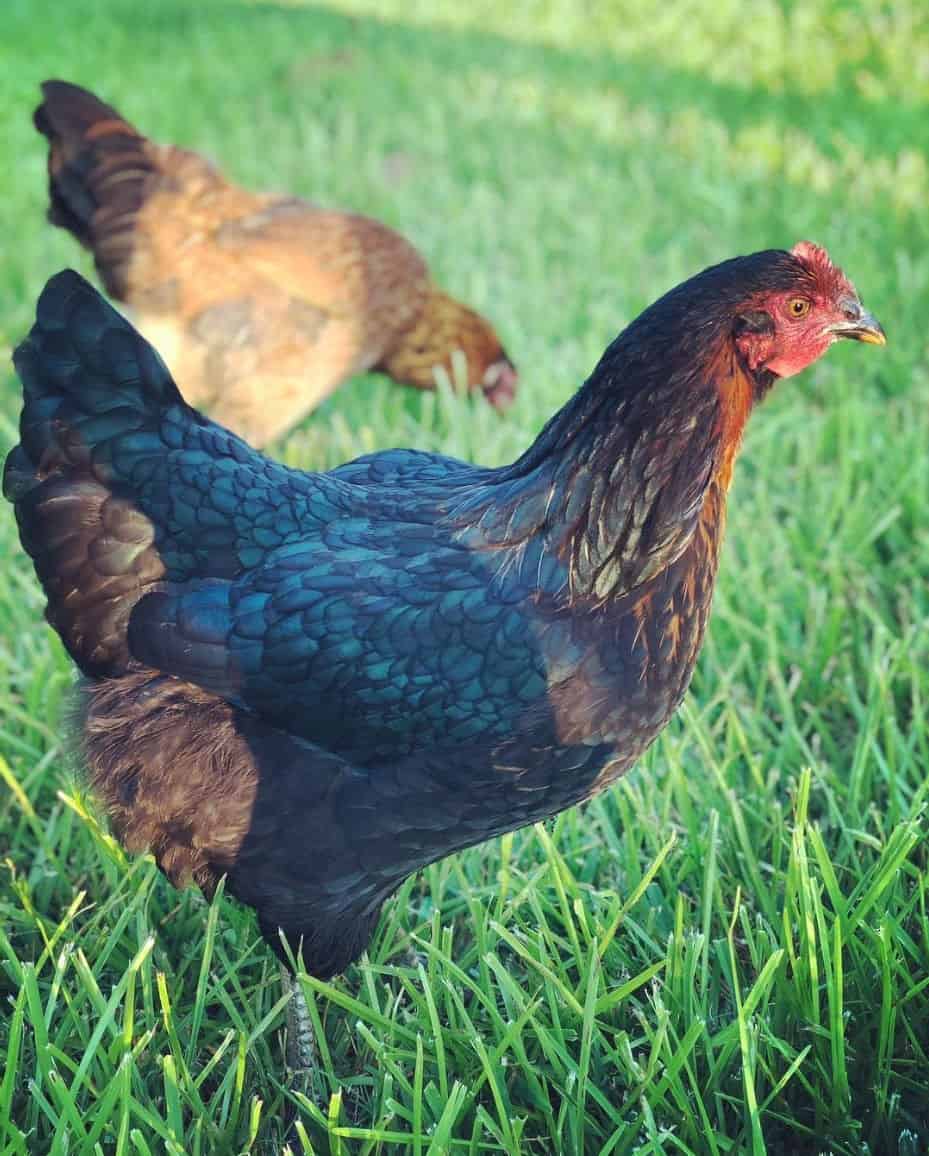
Both sexes of this hybrid breed will be black when they first hatch. The only difference is that the males will have a single white dot on their heads. As the pullets grow, they’ll be primarily black with some red feathers in the neck area.
On the other hand, the males will have a very similar pattern to the Barred Rock breed. They’ll also have some red feathers mixed in.
Keep in mind, these are the standard colors, but there could be a little variation depending on which parent breed they take after more. Regardless of the situation, both sexes will still have a very distinctive look that can help you figure out what they are.
In terms of breed standard, in order to get an authentic Black Sex Link chicken, a barred hen will need to be bred with a non-barred rooster. The typical breeds are a Barred Plymouth Rock hen and a Rhode Island Red or New Hampshire Red rooster.
With this hybrid, the barring gene is only in the males and the females don’t get it. One thing to keep in mind is that you won’t get a sex-linked chick just by breeding 2 sex linked breeds.
Personality and Temperament
Even if you’re looking for a breed that lays a high amount of eggs, you don’t want one that’s overly aggressive or prone to causing issues with other birds in your flock. The good news is that the Black Sex Link breed isn’t very aggressive at all.
They are quite docile and friendly, which could be a blessing and a curse. It’s a blessing because they are loving with you and tend to do well with the other birds in the flock. One issue is that they tend to be fearless around predators, which can result in them getting hurt.
While they are docile and friendly, they can also be a bit stubborn depending on the situation. They might be a little difficult to get back into the coop at night and they don’t really like going in.
They also usually enjoy wandering and can be pretty quick and hard to catch. One other thing about this breed is they can be pretty loud, which might not be a good thing depending on your location.
All in all, though, the temperament and personality of these birds are very sweet and loving. If you add them to your flock, you shouldn’t be disappointed!
Black Sex Link Chicken Egg Laying
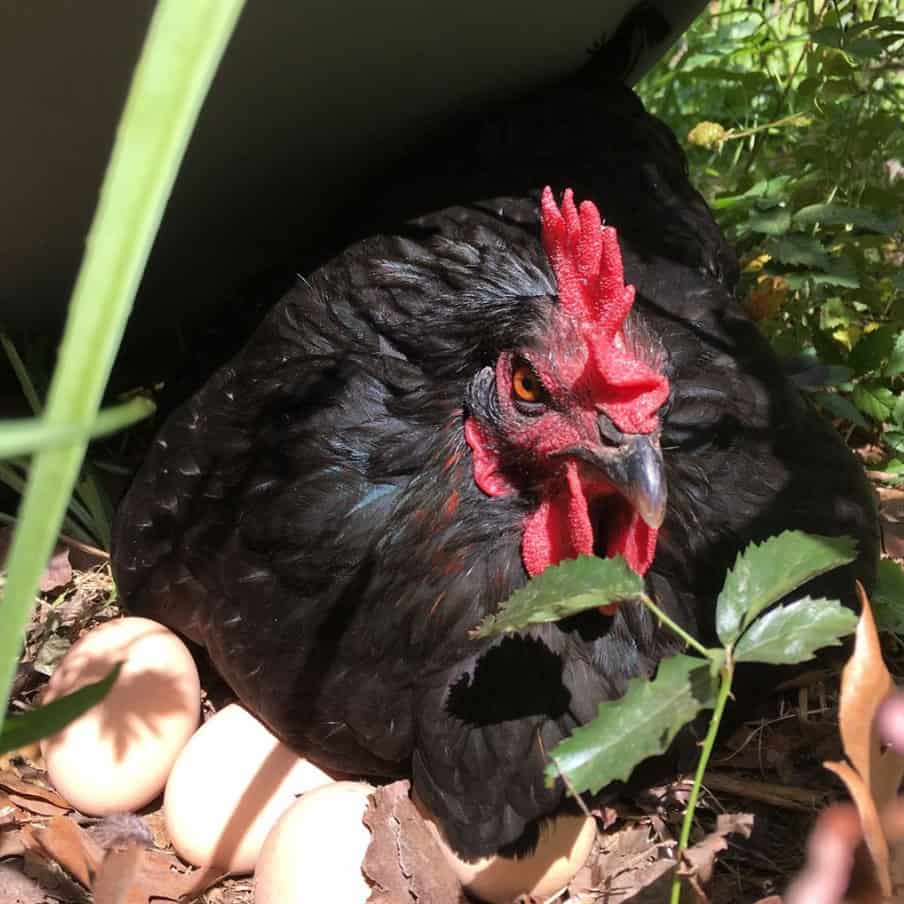
The Black Sex Link chicken produces decently sized eggs that are brown in color. In fact, they can lay more than 250 eggs per year. While they can be used for dual purposes, they are most sought after for how well they lay eggs.
Most of the time, they will start laying around 16 weeks. Keep in mind, though, they can lay a little earlier or later than that. They will also usually lay at least 1 egg a day, but this number can go way down in colder temperatures.
To keep egg production up, there are a few things you want to do. For starters, make sure you’re feeding them feed that is made for increased egg production. You also want to try and keep things as warm as possible because cold temperatures can make production slow down or even stop.
One other thing to remember is that most chickens will start laying with layer eggs, which are much smaller than the normal eggs they’ll grow to produce. After a few weeks, they should be starting to lay normal and full-sized.
Health Issues and Care
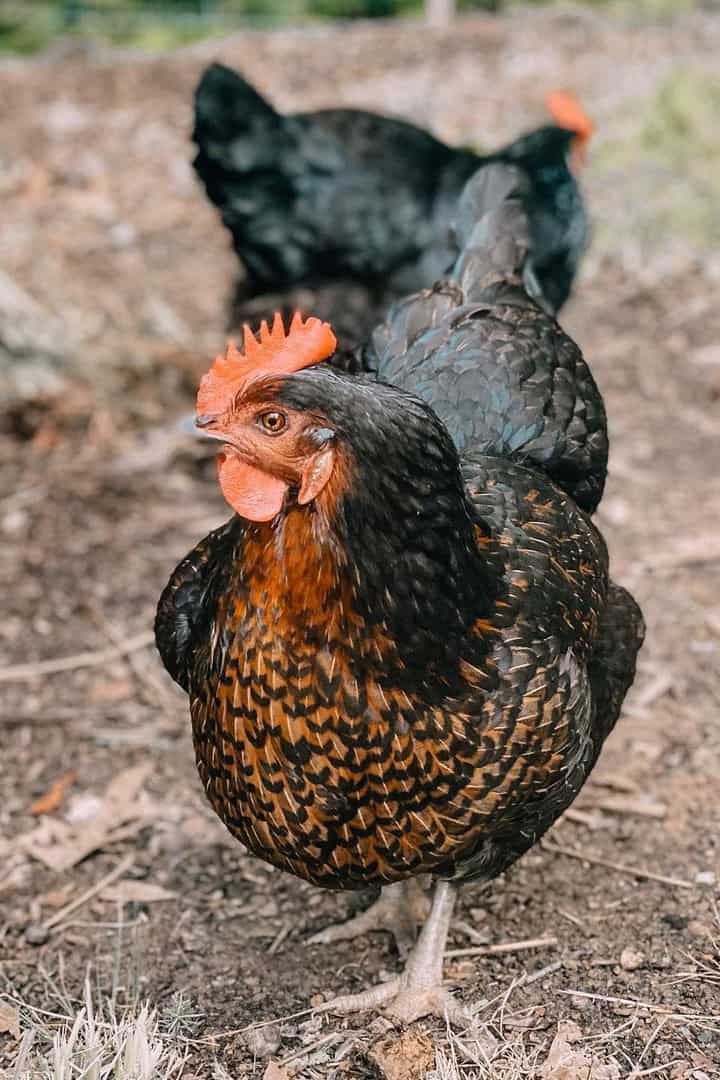
Like all chicken breeds, the Black Sex Link also has some health concerns that are common and happen quite frequently. For starters, they are prone to parasites that develop both inside and outside. Some of these are worms, mites, and lice.
They can also experience a lot of the health issues that other breeds experience, such as fowl cholera and avian influenza. Keep in mind, if you have a sick chicken, it’s a good idea to remove them from the flock while you’re getting them better because you don’t want it to spread.
Another thing to keep in mind when it comes to the hens of this breed is that they will usually lay well for around 2 or 3 years. After this point, they usually lay a lot fewer eggs and things slow way down. They will usually only live to be around 5 years old.
The reason is that they usually develop issues to do with tumors on the reproductive system and something called egg yolk peritonitis. There’s always that chance that they could live longer and not have to worry about these issues, but most chickens of this breed will only live to be about this age.
5 Tips for Raising Black Sex Link Chickens
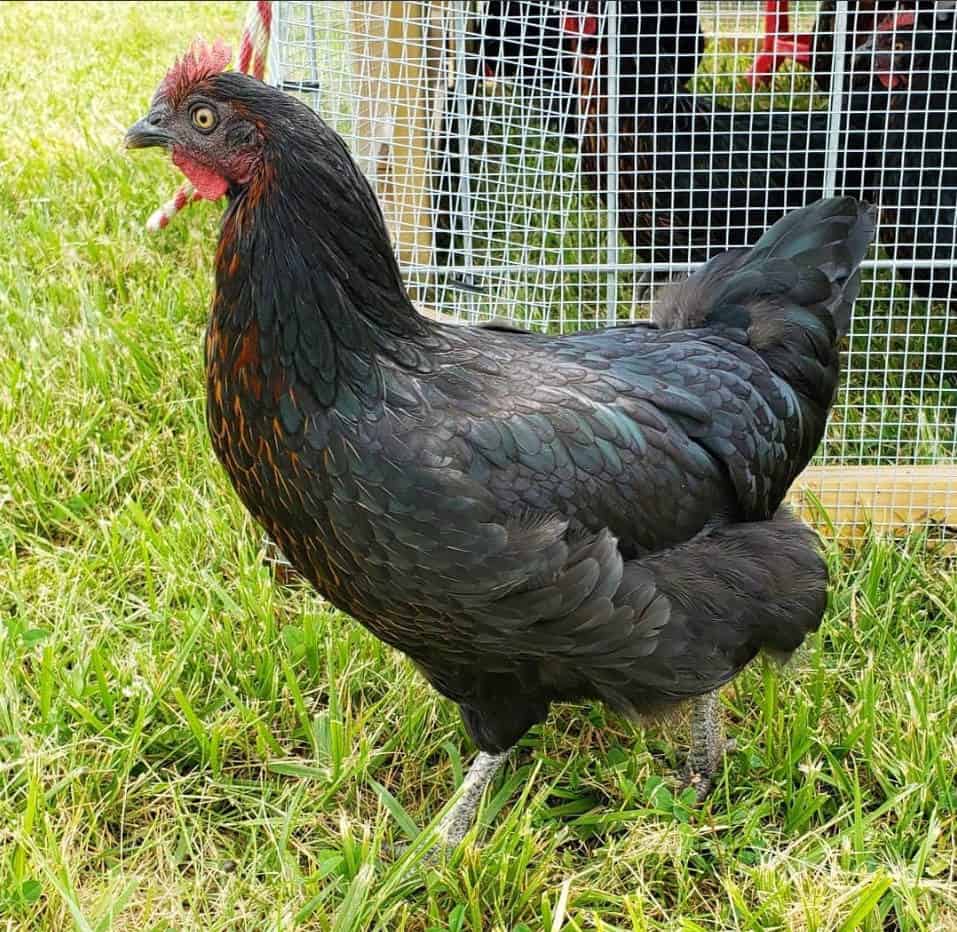
It’s important to know how to raise Black Sex Link chickens. With that being the case, it’s important to learn some tips to help you take the best care of your birds possible. To help with this, we’ve put together 5 tips for you.
1. Housing
The first thing to think about is where you’ll house the birds. They need a large grassy area that they can spend time in. They’ll also need some kind of structure that they can sleep in, lay eggs in and be protected from any potential predators.
Depending on what kind of predators are in your area and your preferences, you can completely enclose the area they’ll be in or just enclose the area that they’ll be in while they aren’t sleeping.
2. Feeding/Watering
Next, you’ll want to consider the feeding and watering setup. You want to make sure you offer enough food for the number of chickens you have. You’ll also want to make sure you feed them the correct number of times per day.
In terms of watering, remember that chickens tend to mess up their water and it needs to be replaced frequently. As a result, it’s important to find something that can be changed and refilled easily. You could use a large rock or piece of wood to elevate the waterer to help minimize how messy it gets.
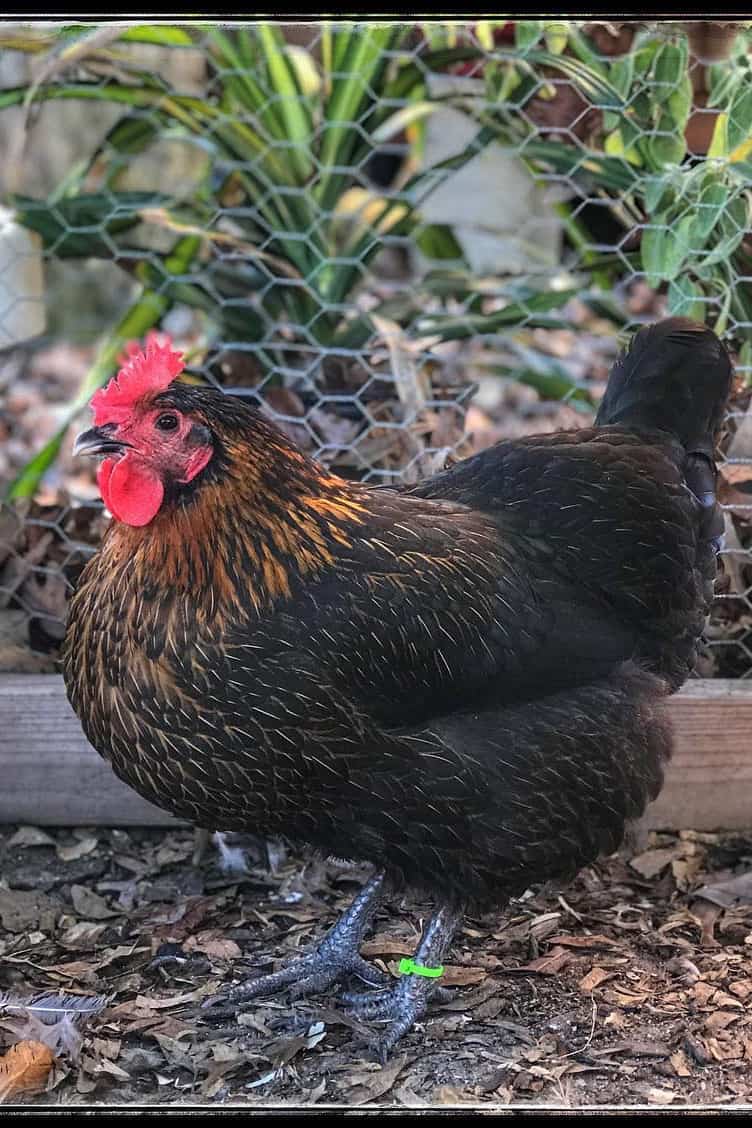
3. Cleaning
Depending on how many chickens you have and how messy things get, you should only have to change out the bedding every 4 to 6 months. You’ll probably have to sift out any nasty parts as needed, but you shouldn’t have to do a deep cleaning before the 4-month mark.
4. Handling
It’s important to handle the birds starting from the moment you get them. As chicks, you want to handle them as much as possible because it will reduce the chances of things like aggression.
As they get older, they may not like being handled as much, so let them come to you whenever they like. If you need to pick them up, make sure you do so in a way that won’t hurt them or leave them unsupported.
5. Laws/Regulations
The final tip for raising chickens is to look at the laws and regulations for your area. Some places don’t allow chickens, while others will only allow you to have a certain amount. Look up the laws to ensure that you won’t get into any legal trouble.
Summary
After getting all of the important information, you can see why this bird is in such high demand. Not only do they lay decent-sized eggs, but they have colors that are absolutely stunning. Add that to the fact that they are very docile birds and you’ve got a breed that you’ll want to keep forever.
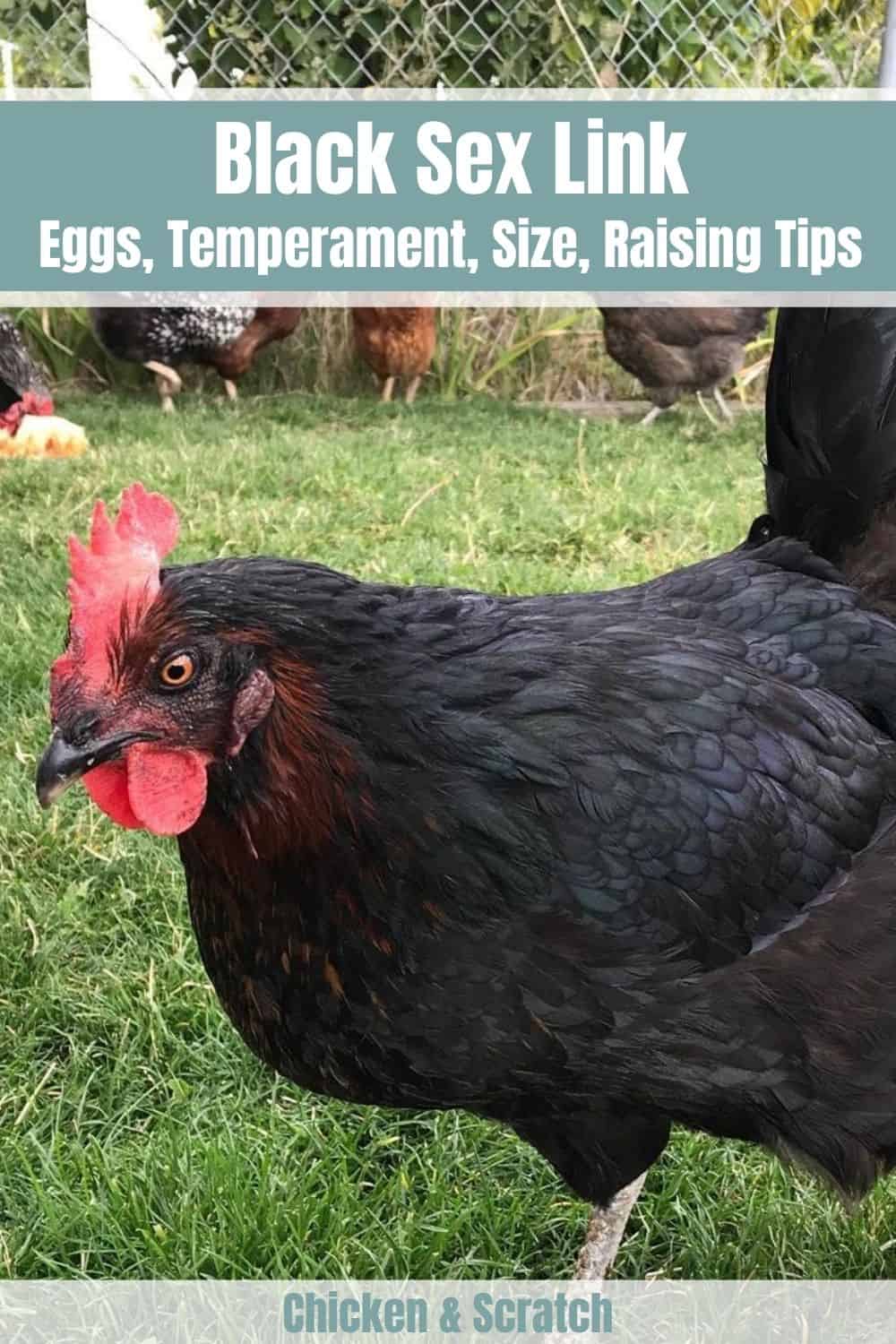

Joseph Hudson has been raising chickens for over 15 years. In 2018, he completed the Agriculture & Natural Resources program at Mt. San Antonio College. He currently raises over 1400 chickens on his 7.5-hectare farm. He keeps sharing his experience on raising healthy and happy chickens on Chicken Scratch The Foundry.
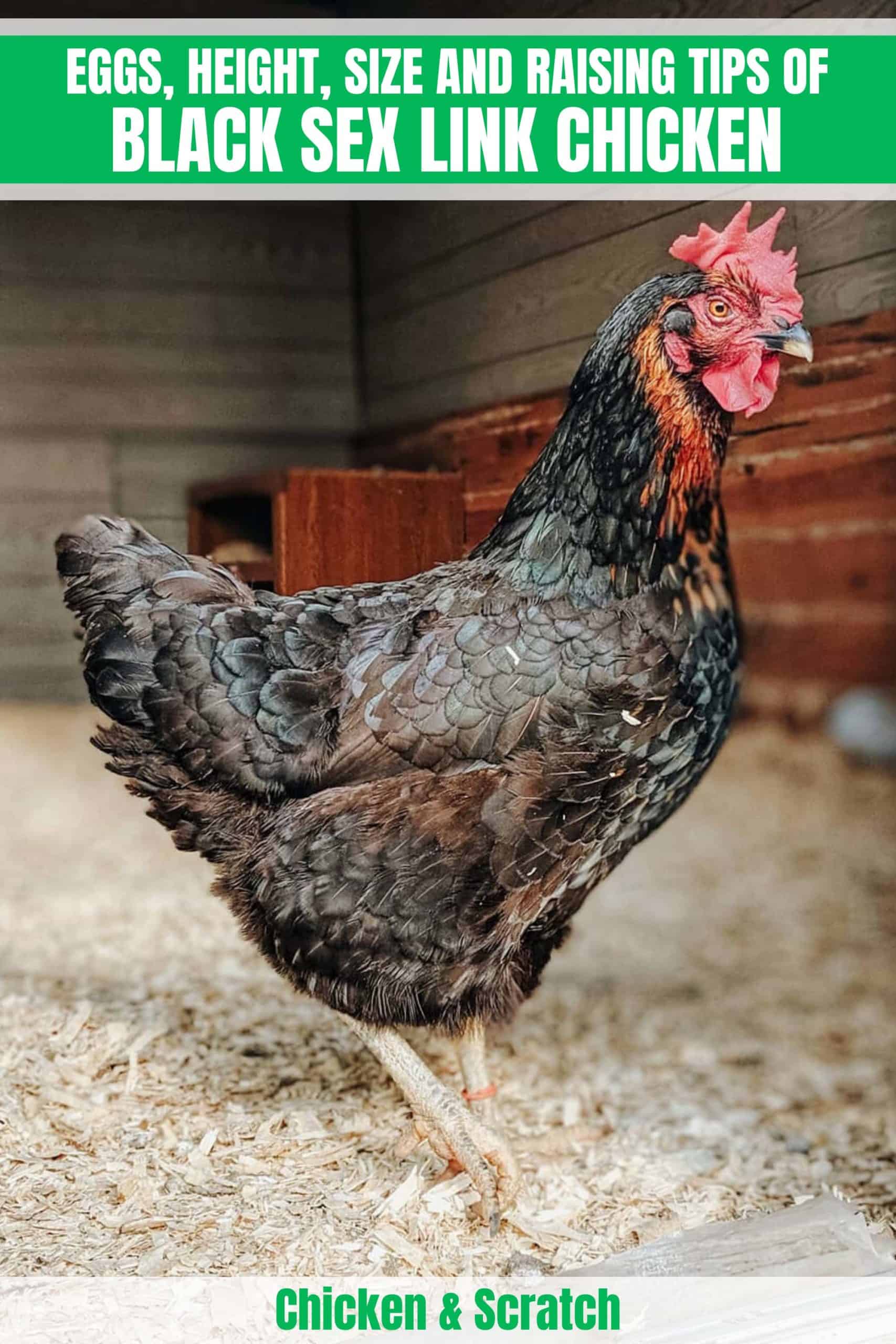







This website was very helpful. Thank you.
The history of the Black Sexlink chicken was interesting. I was dissapointed because in no where in the article did it mention the heigh or size and that was the main reason I clicked on this link.
2 to 4 feet
I just purchased chicks today and am so excited to find your article. My calendar is now marked at 16 weeks as an anticipated date to start collecting eggs.
I was hoping to find information on where this breed might end up in the pecking order. I have all docile, friendly breeds, so it’s hard to tell. So far, the Australorp and one of the Barred Rocks seem to be the bossiest, but they are just chicks. My BSL is older than some of the others, and so far, she seems to be at the high-mid end of the pecking order. What is full-grown weight range?
My 4 chicks are 20 weeks old and have not started laying. What’s going on? They are roaming in a large fenced area, have lots of grass and I feed them organic laying pellets. Am I missing something?
Maybe up their protein a little. Probably filling up on grass and thus eating less of the layer pellets. Also make sure you have some oyster shells or other calcium for them
I have 5 sex link hens and they are about 6 months old . They haven’t layer any eggs yet. I feed them layer pellets along with scratch and oyster shell calcium . Not sure what else I need to do. But no eggs yet. Help??
Hi Laura,
Your 6-month-old hens should start laying soon, so give it a bit more time. Your feed sounds appropriate.
Light: Ensure they get 14-16 hours of light daily.
Stress: Keep their environment calm and free from disturbances.
Nest Boxes: Ensure you have comfortable nesting boxes for them.
Health: Check for any signs of health issues.
Sometimes, it just requires a bit of patience. Good luck, and hoping you’ll see eggs soon! 🥚🐔
(By the way, if you’d like to delve deeper into information about chickens laying eggs, these articles might be of assistance. In any case, please remember to offer your girls plenty of patience:
How Do Chickens Lay Eggs?
8 Signs to Tell if a Chicken is Laying Eggs
When Will Your Chickens Start Laying Eggs?
)
what hatchery sells a sex link chicken that lays the largest eggs ?